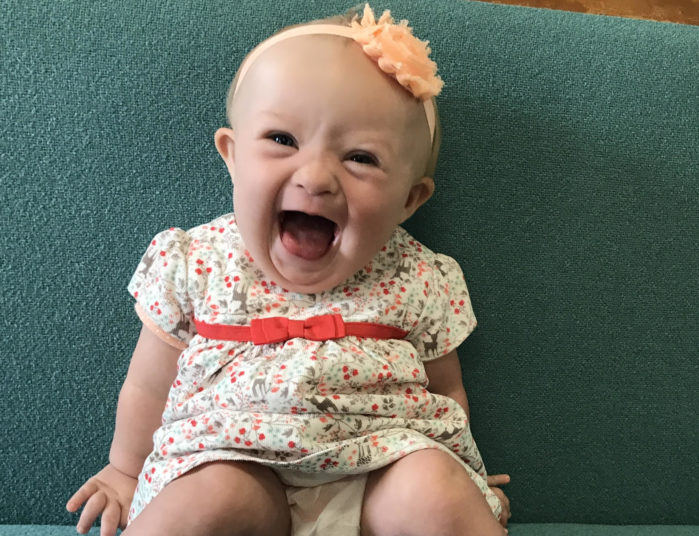Several pro-life groups filed friend-of-the-court briefs this week defending an Indiana law that protects unborn babies from discriminatory abortions.
The law prohibits discriminatory abortions based on an unborn baby’s disability, gender or race. Vice President Mike Pence, who was Indiana’s governor at the time, signed the law, but the abortion giant Planned Parenthood and the American Civil Liberties Union challenged it in court.
Now, pro-life advocates hope the U.S. Supreme Court will hear the case and uphold the law.
The American Center for Law and Justice urged the high court to review the case this week on behalf of 44 families of children with disabilities.
“Indiana’s law protects children like theirs and recognizes that unborn children deserve protection from invidious discrimination,” the legal group wrote in its brief. “Though many of these families ultimately lost their children, these parents do not consider that to have diminished the importance of the children’s lives.”
Calling the law a ban on eugenic abortions, ACLJ pointed out that many vulnerable parents are pressured into the “irreversible decision” to abort unborn babies with disabilities.
“Even parents who say they would have aborted had they known of their child’s disabilities commonly profess great love for those same children,” the legal group wrote. “The grim prognosis a physician or genetic counselor offers a pregnant woman cannot possibly capture, and offer as a realistic counterweight, the genuine loving bond a mother or father later experiences.”
Three organizations dedicated to helping children with Down syndrome also filed a brief to the U.S. Supreme Court in support of the law. The Bioethics Defense Fund wrote the brief on behalf of Fondation Jérôme Lejeune, Saving Down Syndrome and Down Pride.
REACH PRO-LIFE PEOPLE WORLDWIDE! Advertise with LifeNews to reach hundreds of thousands of pro-life readers every week. Contact us today.
“The statute is properly called the ‘Nondiscrimination Law’ because abortion based solely on an unborn child’s disability or other minority status crosses the line into eugenic discrimination,” said Nikolas T. Nikas, president and general counsel of Bioethics Defense Fund.
Nikas said scientific knowledge about life in the womb has expanded rapidly since the U.S. Supreme Court ruled on Roe v. Wade in 1973. He argued that the high court’s “analysis of the challenged statute should not be limited by 45-year-old science.”
Dorinda C. Bordlee, lead counsel for the group, added, “The government interest in prohibiting discrimination based on disabilities or other immutable traits must logically exist from the outset of that human being’s life or not at all.”
The national pro-life group Susan B. Anthony List also asked the Supreme Court to hear the case in a brief this week.
“The fate of thousands of children with Down syndrome depends on laws like Indiana’s that protect them from being targeted for destruction in the womb,” said SBA List President Marjorie Dannenfelser. “Our nation has fought a long – but still incomplete – battle to expand legal protections and educational and social opportunities for people with disabilities.”
If enacted, the law would ban abortion doctors from knowingly aborting an unborn baby solely because of a disability such as Down syndrome, the unborn baby’s race or sex. It also requires that aborted or miscarried babies’ bodies be cremated or buried.
Indiana was the second state to establish a safeguard to protect unborn children with Down syndrome and other disabilities. It became the eighth state to prohibit sex-selection abortions prior to viability.
However, the state has been blocked from ending these discriminatory practices while the courts consider the merits of the law.
Planned Parenthood’s lawsuit, Box v. Planned Parenthood of Indiana and Kentucky, has been moving through the courts for years. The Seventh Circuit Court of Appeals affirmed a decision to block the pro-life law earlier this year, after a federal judge ruled against it in 2017.
If the case is accepted by the U.S. Supreme Court, there is hope that the law will be upheld. With Justice Brett Kavanaugh recently confirmed, the now conservative majority court may decide cases in a pro-life manner. Kavanaugh’s predecessor, Justice Anthony Kennedy, rarely ruled in favor of life.
Unborn babies with Down syndrome and other disabilities are discriminated against at alarming rates. Parents whose unborn babies have disabilities frequently report feeling pressure to abort them by doctors and genetic counselors.
The rate of unborn babies who are aborted after a Down syndrome diagnosis is about 67 percent in the U.S., according to CBS News. Some put the rate as high as 90 percent in the United States, but it is difficult to determine the exact number because the government does not keep detailed statistics about abortion.








